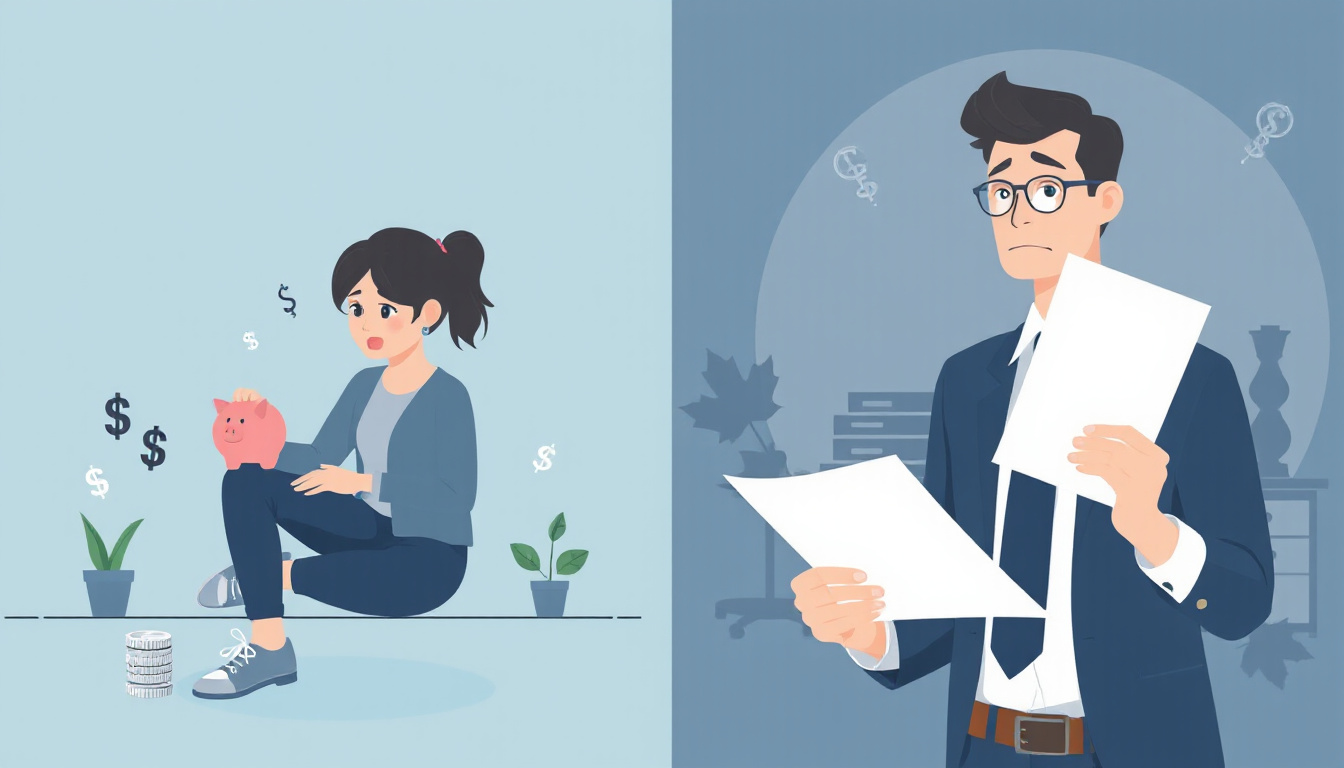When it comes to managing debt, one of the most pressing questions Canadians often face is, ‘Should I pay off debt with savings or a loan?’ Making the right choice can significantly impact your financial wellbeing, and understanding the nuances of both options is crucial. In this article, we will explore the risks and benefits of using your savings for debt repayment, when it might be more advantageous to consider taking out a loan, and how to evaluate your financial situation to make the best decision for your circumstances. Read on to equip yourself with valuable insights and strategies for effective debt management.

Key Takeaways
- Using savings to pay off debt can eliminate interest payments but may deplete your emergency fund.
- Taking out a loan for debt repayment can provide cash flow but may lead to more overall interest costs.
- Evaluate your financial situation and debt types before deciding on a repayment strategy.
- Consider the risks associated with draining your savings versus the long-term obligations of a loan.
- Finding a balance between savings and debt repayment is crucial for maintaining financial stability.
Understanding the Risks and Benefits of Using Savings for Debt Repayment
When considering whether to pay off debt with savings or a loan, it’s essential to weigh the risks and benefits of each option carefully. Using your savings to eliminate debt can provide immediate relief from monthly payments and reduce interest costs over time. However, depleting your savings can leave you vulnerable to unexpected expenses, which might force you to resort back to borrowing. On the other hand, opting for a loan to manage your existing debt may offer lower interest rates and allow you to maintain a financial cushion, but it could also lead to a longer repayment period and potential accumulation of more debt. You need to assess your financial situation, including the interest rates on your debts, your current savings balance, and your ability to make payments. Ultimately, the decision about whether to pay off debt with savings or a loan should hinge on fostering long-term financial health while navigating immediate financial pressures.
When to Consider Taking Out a Loan to Pay Off Debt
When faced with mounting debt, many Canadians wonder, ‘Should I pay off debt with savings or a loan?’ This crucial decision often hinges on individual financial circumstances, interest rates, and long-term goals. Taking out a loan to consolidate existing debts can simplify payments and potentially lower your overall interest rate, especially if you qualify for a personal loan with favorable terms. However, using savings to pay off debt can provide immediate relief without accruing additional interest. It’s essential to evaluate your savings account—consider if tapping into those funds will leave you vulnerable to unexpected expenses. If your savings cover the debt easily and still leave a buffer for emergencies, paying off the debt outright might be the best strategy. Conversely, if taking out a loan offers lower interest rates than what you’re currently paying or provides manageable monthly payments, it might be a practical solution to reduce financial strain. Ultimately, the choice between using savings or taking out a loan depends on your financial stability, debt levels, and future financial goals.
‘Do not save what is left after spending, but spend what is left after saving.’ – Warren Buffett

Evaluating Your Financial Situation: Making the Right Choice
When faced with the dilemma of whether to pay off debt with savings or a loan, it’s crucial to evaluate your financial situation thoroughly. Start by assessing your current debts, interest rates, and monthly payments. If your debt carries a high interest rate, it may be tempting to use savings to eliminate it quickly. However, consider the impact on your emergency fund; draining savings can leave you vulnerable to unforeseen expenses. On the other hand, taking out a loan might provide immediate relief but could lead to more debt if not managed wisely. Weigh the pros and cons—such as interest rates, monthly obligations, and cash flow challenges—to determine the best approach for your unique financial circumstances. Remember, strategic financial planning can lead to better long-term outcomes, allowing you to manage your debt effectively while maintaining stability.
